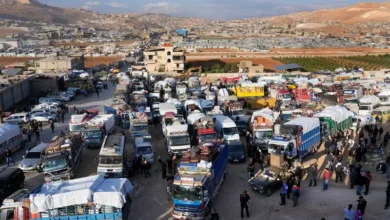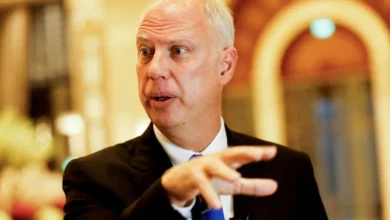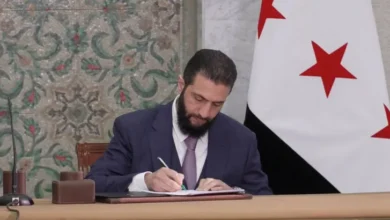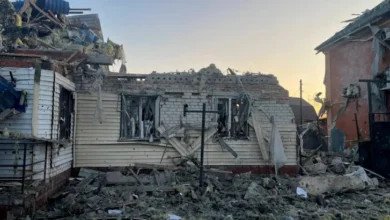El Salvador prisoner ‘rearrests’ fuel new concerns
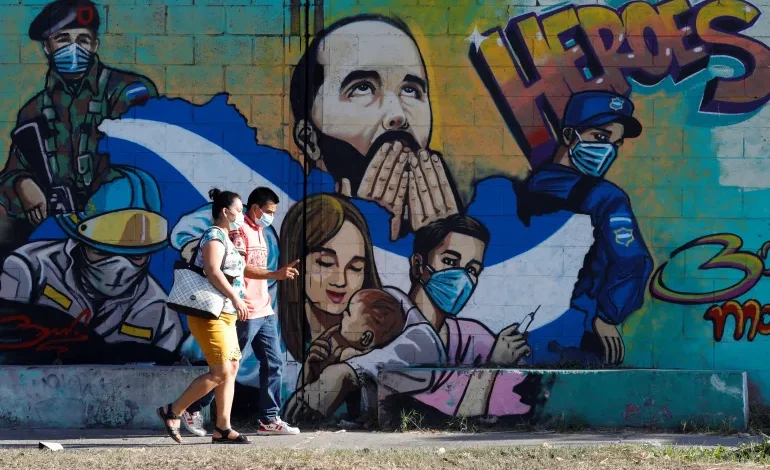
For the past five months, Marcela Alvarado has made an almost daily pilgrimage to different Salvadoran government offices demanding her son Jose Duval Mata Alvarado’s release.
Mata Alvarado, a 26-year-old tractor driver with three children, has been in prison since April of last year, when he was accused of being involved with a gang under an emergency order imposed across the Central American nation a month earlier.
A judge ordered his release in September, but Mata Alvarado was immediately rearrested after being freed – and remains behind bars today.
“I’m really distressed because they say that there [in prison] they can die,” said Alvarado, 51, who told Al Jazeera that her son was falsely accused and has no ties to gangs.
More than 64,000 Salvadorans have been arrested during the government’s “state of exception”, which lawmakers extended for the 11th time on February 15 and suspends certain civil liberties, such as the right to a lawyer and time limits on pre-trial detention.
President Nayib Bukele has defended the measure amid criticism from rights groups, saying it has reduced homicides, extortion, and visible gang presence. Crimes rates have dropped enough, at least in the short term, that Salvadorans report feeling safer.
The country’s security minister also recently said it would remain in place until all gang members are arrested. Officials estimate that meant at least 10,000 more arrests.
But now, the police workers union and human rights groups have said a rising number of Salvadorans detained under the state of exception – including Mata Alvarado – have been “re-arrested” upon release after either being granted bail or having their cases dropped.
With citizens’ approval rate for the policy at 76 percent, that suspicion has “now been confirmed”, Escobar told Al Jazeera. “They have created a narrative that there is a government that pulled its pants up and eliminated the gangs here,” he said. “They can’t close the issue now, because it’s the greatest achievement that they’ve had.”
Few releases
The Salvadoran government has not provided data on how many of the cases have reached a verdict, which typically can take years in the country’s justice system.
By mid-January, about 3,745 people arrested during the state of exception – but who Bukele has said are innocent – had been released, according to the most recent government statistics.
But with government data showing that 49,000 people had been arrested nationwide as of last August, these tens of thousands of detainees should be eligible for a hearing to determine if they can be released from pre-trial detention, which can only last six months.
Hector Carillo, director of the access to justice programme at the Foundation for the Study of the Application of Law (FESPAD), a Salvadoran NGO, said defence lawyers are buckling under the weight of all their cases and many are unable to request these special hearings.
Prosecutors also have not had time to gather enough evidence within the six-month period of pre-trial detention, so they have often requested extensions. “This leads to people continuing in detention,” Carillo said.
For prisoners who were released, two types of rearrests were occurring, according to the police union and human rights groups following the issue.
The first is seen in the case of Mata Alvarado, who his mother said was immediately rearrested outside the prison. At the end of September, his mother said she received a call from an official saying her son was being released. Fifteen minutes later, Alvarado’s phone rang again. This time, the person on the other end told her not to come to the prison.
Weeks later, she said she received information that her son had been arrested again for “illicit association” – a common charge levied against people accused of being involved with gangs during the state of exception.
In other instances, people return to their communities and resume their daily lives before being taken back into custody. In one case reported in local media, a man who was released due to lack of evidence was arrested again at his workplace for the same crime of “illicit association”. His wife told the press that she worried about his health because he began to experience heart problems while in prison the first time.




